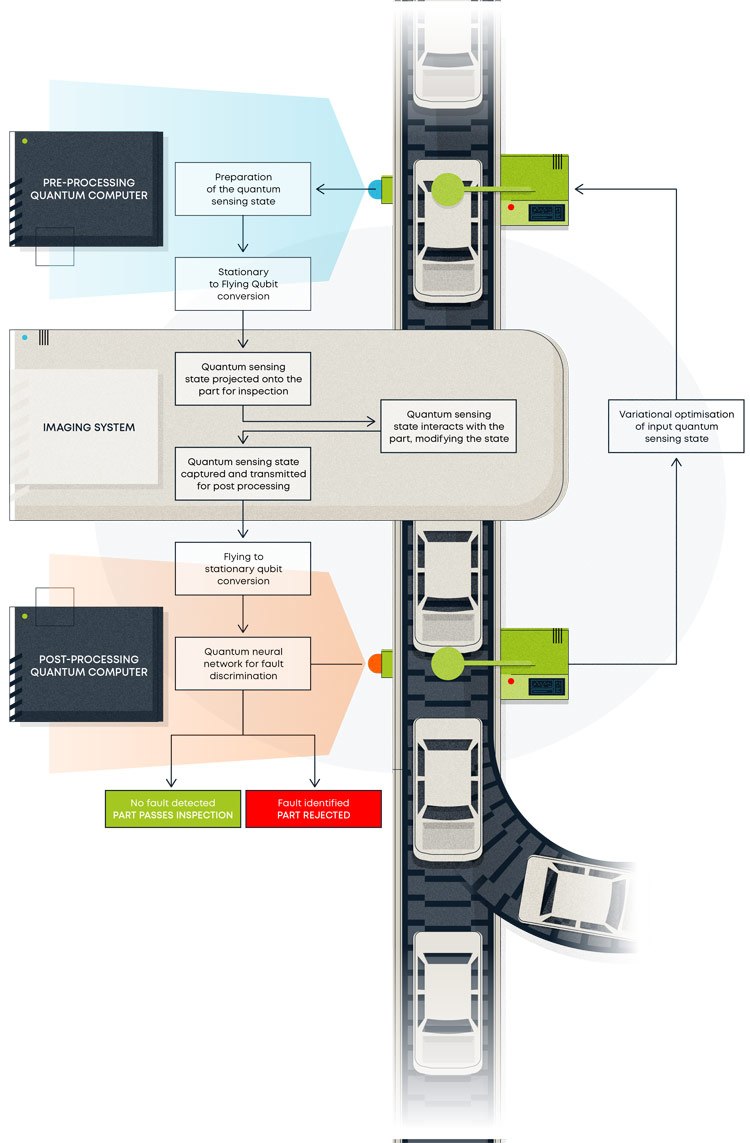As a quantum physicist at Cambridge Consultants, I tend to get pretty excited by the astonishing potential of quantum computing. It’s going to unlock performance that is so many orders of magnitude faster than the status quo that the possibilities are almost unimaginable. So, when I have an extracurricular opportunity to help propel theory towards commercial reality, I’m more than happy to pitch in. Put it this way – when my colleagues at Capgemini invited me to collaborate with them on the BMW Group Quantum Computing Challenge, they didn’t have to ask twice.
The initial call came last summer, when the well-established Capgemini quantum computing community was given the opportunity to compete in the challenge as a long-standing partner of BMW. The world-renowned automotive manufacturer is among those leading the way as the new quantum landscape takes shape – and launched its initiative in collaboration with Amazon Web Services (AWS) to crowd-source innovation. Read more on our approach to the quantum challenge in this article.
Before I dip into the detail of our participation, the first thing to report is the great news that we made the cut as a finalist in the global challenge, which attracted no fewer than 70 submissions from a wide range of companies, including Silicon Valley start-ups specialising in quantum. The Quantum Computing Challenge jury was kind enough to pay particular tribute to our innovative quantum sensing approach, which I’m going to unpack in more detail in this article. Watch out for a follow-up blog in which I reveal our thoughts on how manufacturers might create a roadmap for the adoption of quantum technology and address the key question “When will quantum technology become commercially relevant?“
But for now, let’s start with my personal overview of the crowd-source challenge, the kind of approach which I see as a great way to identify and develop use cases with real-world relevance. As I’ve already intimated, quantum computing has the potential to achieve things that are currently impossible with conventional or ‘classical’ computers. The technology is developing rapidly, and BMW is just one of the forward-thinking global players looking to understand the possibilities once larger-scale quantum computers become available. Programming for such machines is not as simple as changing a compiler – algorithms must be designed specifically for them if they’re going to deliver advantage.
The impossible is about to become possible.
BMW set four use case challenges, from which Capgemini chose Machine Learning for Automated Quality Assessment. I teamed up with my Capgemini colleagues to work on the image recognition aspect of quality assurance. The first round was all about proposing ideas for applying quantum technology to our chosen use case, and from the get-go I was enthused by how the collective CC and Capgemini experience in machine learning, quantum technology and manufacturing processes within automotive strongly informed our response.
Holistic approach to quantum technology
Cracks in a chassis can significantly affect a car’s performance and can be really costly if not spotted early in the production process. BMW is currently exploiting state-of-the-art ML methods using images to screen parts on the production line. But could quantum methods enhance the effectiveness of this process? ML expert Barry Reese discussed our work to evaluate this question in an earlier article. Although the challenge was very focused on the application of quantum algorithms, we wanted to take a more holistic, end-to-end approach. Identifying a crack involves not just the image processing itself but also image capture and sensing in terms of the production line, data acquisition and automated decision-making.
My contribution here was really future-focused and inspired by the host of emerging new technologies which use quantum effects for enhanced sensing and imaging. My thoughts homed in on the possibility of using quantum sensing techniques to address obscuration, where dust or sprays of paint would normally prevent a traditional camera from capturing a clear image. Using single photon detection, LiDAR images could be captured to identify crack formation when it’s happening – even if it is obscured by stray particles.
We also explored a future where quantum sensing and quantum computing could be used in combination. One of the key hurdles of image processing using quantum computers is sure to be the uploading of data. High resolution images contain lots of information. Uploading it all will be hindered by a bottleneck caused when transferring classical data onto a quantum computer. The process is limited by physical principles, which are unlikely to be addressed quickly by quantum hardware development roadmaps. (Assuming it’s even possible.)
To overcome this bottleneck, we suggested extracting quantum states from a quantum computer and using these in a quantum sensing approach. Again, the thinking is ahead of the curve, but in my view could be viable in five to 10 years. Transferring quantum information from one computer to another is going to be necessary for large-scale quantum computing – and this is where so-called flying qubits could come in. Our proposal was to use these information-carrying particles as a quantum sensor. An output state from a quantum computer could be transmitted to the part under inspection and an imaging system would be used to project the state onto the part. Information about the part would be imprinted onto the flying qubit state through interactions with the part’s surface.
Hybrid sensing/computing quantum approach

This information would be captured and transmitted back to a post-processing quantum computer which could use a quantum neural network to process whether the part is faulty or not. By uploading information from the part in a quantum-native form, this quantum sensing/computing hybrid approach would avoid memory bandwidth bottlenecks.
I have to say it was a brilliant experience working with the Capgemini team, which included Barry Reese, a globally recognised expert in classical ML and who built the quantum ML model that we shared with BMW. Christian Metzl masterminded the project, bringing the various elements together and drawing on his extensive automotive experience. As well as developing the path-breaking quantum ML model, the team found viable ways to apply quantum technology in the near term. This was down to a holistic approach which embraced not just the model but the end-to-end quality assurance process.
When will quantum technology be commercially relevant?
Meanwhile, watch out for my forthcoming blog on quantum adoption roadmapping which addresses the key question – when will quantum technology be commercially relevant? (also linked to our work on the challenge) and do drop me a line if you’d like to discuss any aspects of our innovative quantum ideas in more detail. It’ll be great to continue the conversation one-to-one.
You may also be interested in this Capgemini Innovation Report: How to prepare your organization for a quantum advantage now





